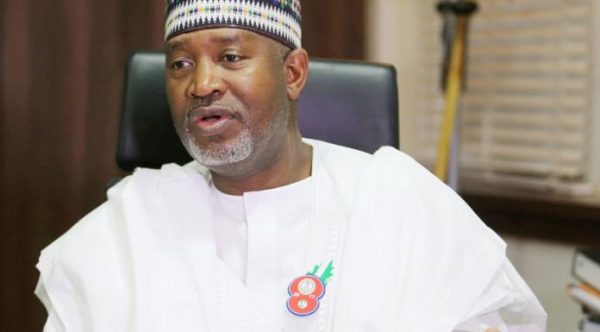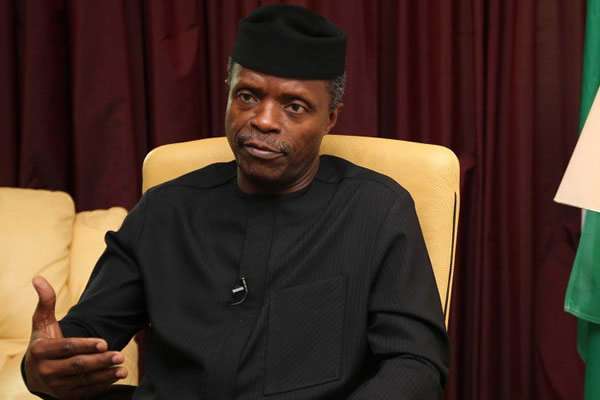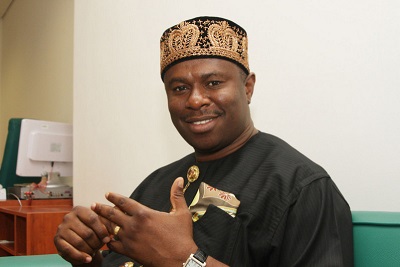AU Summit Prepared to Sign Free Trade Treaty without Nigeria

- MAN urges FG to renegotiate terms
African Union (AU) chairperson Paul Kagame Tuesday gave a strong indication that member states would go ahead to sign the treaty to create the continental free trade area, even with the continent’s most-populated country, Nigeria’s withdrawal from the meeting.
At least 53 African Heads of States have gathered in Kigali, Rwanda, for the 10th Extraordinary Summit of the AU to consider the legal instruments for the African Continental Free Trade Area (AfCFTA) and also launch the agreement officially to establish the treaty.
AfCFTA is aimed at deepening African economic integration, promoting agricultural development, food security, industrialisation and structural economic transformation through a single-air continental transport market with free movement of persons, capital, goods and services.
It is part of Africa’s plan to promote intra and inter-regional trade, economic cooperation and partnership on the continent by 2063, and seeks to make Africa the largest free trade area, improve its economies and strengthen its position in global trade.
According to the African News Agency (ANA), South Africa’s President Cyril Ramaphosa, who will attend the signing of the agreement in Kigali Wednesday, said his country was committed to the establishment of an AfCFTA that will boost intra-Africa trade in accordance with the aspirations of the AU Agenda 2063.
However, President Muhammadu Buhari withdrew his participation from the summit at the weekend and did not travel to Kigali, saying that continental aspirations must complement Nigeria’s national interests.
This was after his cabinet had endorsed the AfCFTA.
“As Africa’s largest economy and most populous country, we are committed to ensuring that all trade agreements we sign are beneficial to the long-term prosperity of the continent,” Buhari had said in a statement.
“We are therefore widening and deepening domestic consultations on the AfCFTA to ensure that all concerns are respectfully addressed. Any African free trade agreement must fairly and equitably represent the interests of Nigeria, and indeed, her African brothers and sisters,” he had said.
Buhari’s decision to skip the signing ceremony arose from the objection raised by the Nigeria Labour Congress (NLC) to the treaty.
The labour union had expressed concern that the federal government had held consultations on the free trade treaty, warning that it could undermine Nigerian manufacturers and lead to job losses.
Despite this setback in the African trade integration, Kagame appeared unfazed Tuesday when he delivered the keynote address at the opening of the summit, saying that the treaty would be signed Wednesday.
“Tomorrow, we will sign a historic agreement creating a Continental Free Trade Area. The road to this point has been long indeed. It can be measured in decades. And we still have a few more steps to take. But we are persisting, and a new chapter in the story of African unity is set to begin,” Kagame said.
“The stakes are enormous for Africa, but also for the entire global economy, to which Africa will contribute an ever-greater share in the decades ahead.
“The creation of one African market necessarily entails a metamorphosis in how we think and act. The full involvement of the private sector is needed more than ever before.
“The purpose of today’s forum is to discuss how to make the most of the new opportunities we are creating for ourselves,” he added.
Kagame said that the Continental Free Trade Area symbolises the AU’s progress towards the ideals of African unity, but that was not the only reason why it is so historic.
He said increasing intra-African trade, however, does not mean doing less business with the rest of the world.
“On the contrary, as we trade more among ourselves, African firms will become bigger, more specialised, and more competitive internationally.
“Let’s also be realistic. We cannot take the Continental Free Trade Area for granted. After it is signed, there will still be challenges. Any concerns or technical issues that remain should be addressed fairly, but also expeditiously. Work on some additional protocols and annexes will also continue.”
Kagame ended by saying that the full engagement of the private sector in adopting and implementing the treaty “will be absolutely essential”.
However, the Manufacturers Association of Nigeria (MAN) Tuesday urged the Nigerian Government to renegotiate trade conditions that will impede economic growth in its review of the AfCFTA agreement.
MAN president, Dr. Frank Jacob, made the remarks in an interview with the News Agency of Nigeria (NAN) in Lagos.
According to him, MAN was apprehensive that the Rules of Origin in the AfCFTA cannot be adequately enforced to guard against the influx of European Union (EU) goods into the Nigerian market.
The Rules of Origin are used to determine the country of origin of a product for the purpose of international trade.
“We are afraid that the Rules of Origin cannot be adequately enforced because goods from the EU can find their way into one of the African countries that have a bilateral agreement with the EU.
“When the goods get into the African country, they can repackage them, change the label from Made in Europe to that of the African country.
“These same goods will surely find their way to Nigeria which is the main target market for the EU,” Jacob said.
Jacob also noted that the market access under the agreement was a concern to manufacturers, as it provides low protection for locally produced goods.
“The agreement says that 90 per cent of the tariff plan would be liberalised, leaving only 10 per cent to protect manufacturers and that 10 per cent is too low.
“That means that the rest of the 90 per cent is open, duty-free, and people can import.
“What we are saying is that the 10 per cent is too small, even at the current Common External Tariff (CET) regime, we enjoy more than 10 per cent.
“How can they now expect us to accept only 10 per cent as the only protective tariff line. That is an area that is of great concern to us,” Jacob said.
He noted that the AfCFTA would impede growth of the manufacturing sector, lead to the deaths of many businesses, increase the country’s unemployment rate, and incapacitate local technological advancement.
The MAN boss also commended Buhari for cancelling his scheduled trip to Kigali to sign the framework agreement establishing AfCFTA.








